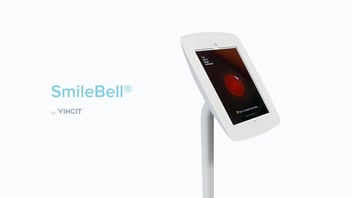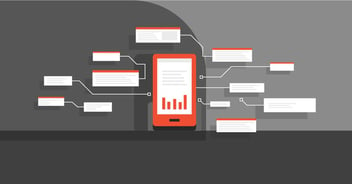Mobile technology trends have recently seen the proliferation of mobile health applications. Here are the top health app trends of 2020.
First up, you guessed it, is that device in the palm of your hand, the one you’re possibly even reading this on. Mobile technology trends have recently seen the proliferation of mobile health applications. These apps optimize patient engagement by allowing you to contact your doctor or healthcare facility conveniently from anywhere, anytime. Believe it or not, currently, about 58% of smartphone users have downloaded one or more health apps.
Many American millennials say that they prefer virtual healthcare to traditional models. With videoconferencing and telehealth taking the forefront in 2020, patients can interact with doctors face-to-face and in real-time rather than the hassle of in-person appointments.
The difference being that you get to enjoy a lot more convenience without sacrificing needed healthcare. As long as you have an internet connection, you can always access professional healthcare advice and treatment.
Physicians are really starting to embrace data to drive the way they provide care to their patients. As an example, over 73 percent of medical students are currently seeking additional training on innovations in healthcare, according to Stanford Medicine's 2020 Health Trends Report.
Similarly, 80 percent of medical students and practicing physicians are encouraging the use of patient health apps, and another 70 percent of medical students support the use of wearable devices.
Data analytics can help medical facilities streamline their services and track patient progress. They also help doctors identify any gaps in patient experience. This way they can provide service that effectively caters to diverse needs.
Cybersecurity has always posed real risks to organizations of all types and sizes, and this is especially the case with healthcare institutions. Data breaches, a problem across all different industries, is particularly acute within healthcare. 2019 was the largest year ever for data breaches, with 500 healthcare data breaches affecting over 41 million individual records last year – an increase of 123 data breaches from 2018.
To protect themselves, organizations have been investing in advanced cybersecurity measures. In 2021, that investment in cybersecurity will exceed $65 billion.
Leaders in the healthcare industry admit that their facilities are investing heavily in AI. Most hospital executives are confident that investing in AI will yield a solid ROI within four years.
But what exactly does implementing AI mean for healthcare? Well, for the most part, administrative work is automated, and resource waste reduced. Further, AI reduces human error, leading to more accurate diagnoses. In 2020, we will continue to see AI and machine learning push boundaries, while at the same time mature and settle into more defined patterns.
Telemedicine has greatly helped growth in the capability of healthcare organizations to offer care in remote areas. But telemedicine relies on networks to provide more speed and quality.
Healthcare centers will increasingly turn to 5G to make it easier to send large imaging files to specialists. 5G also promises to make it easier to use AI and IoT technology, besides allowing for remote monitoring of patients. With its higher bandwidth and lower latency, 5G will enable numerous inventions and practical uses like truly immersive virtual reality platforms and telesurgery to come to fruition.
Health apps continue to be a major part of the medical industry as technology continues to open the door of possibilities. Vincit has worked closely with medical institutions on their digital requirements and can offer expertise and insight into the development of your healthcare applications.



